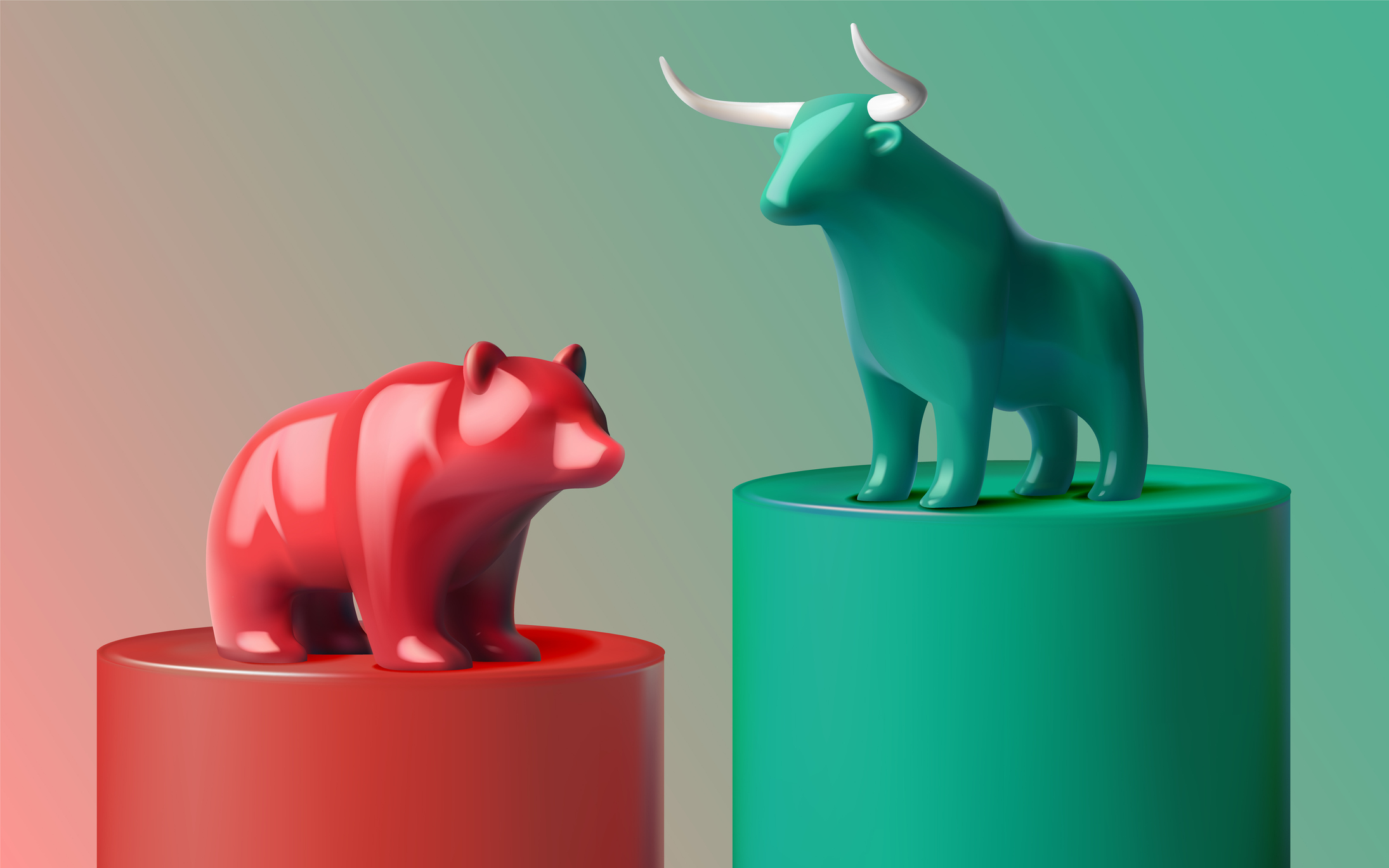Can the Rally Last?
News of the government takeover of Fannie Mae and Freddie Mac sent stocks soaring, but it's not enough to bring back a bull market.

Profit and prosper with the best of Kiplinger's advice on investing, taxes, retirement, personal finance and much more. Delivered daily. Enter your email in the box and click Sign Me Up.
You are now subscribed
Your newsletter sign-up was successful
Want to add more newsletters?

Delivered daily
Kiplinger Today
Profit and prosper with the best of Kiplinger's advice on investing, taxes, retirement, personal finance and much more delivered daily. Smart money moves start here.

Sent five days a week
Kiplinger A Step Ahead
Get practical help to make better financial decisions in your everyday life, from spending to savings on top deals.

Delivered daily
Kiplinger Closing Bell
Get today's biggest financial and investing headlines delivered to your inbox every day the U.S. stock market is open.

Sent twice a week
Kiplinger Adviser Intel
Financial pros across the country share best practices and fresh tactics to preserve and grow your wealth.

Delivered weekly
Kiplinger Tax Tips
Trim your federal and state tax bills with practical tax-planning and tax-cutting strategies.

Sent twice a week
Kiplinger Retirement Tips
Your twice-a-week guide to planning and enjoying a financially secure and richly rewarding retirement

Sent bimonthly.
Kiplinger Adviser Angle
Insights for advisers, wealth managers and other financial professionals.

Sent twice a week
Kiplinger Investing Weekly
Your twice-a-week roundup of promising stocks, funds, companies and industries you should consider, ones you should avoid, and why.

Sent weekly for six weeks
Kiplinger Invest for Retirement
Your step-by-step six-part series on how to invest for retirement, from devising a successful strategy to exactly which investments to choose.
Bear markets are infamous for short-lived rallies ("head fakes," in Wall Street jargon) and this cycle is no exception. Time and again since stock prices peaked in October 2007, the broad averages have staged daily advances so powerful as to suggest that the negative sentiment was turning. But there's been no follow-through.
Here are some specifics: Since July 1, ten times (or more than once a week, on average) the Dow Jones industrial average has been up 100 points sometime during the day, only to finish the trading session with a loss. Whatever news appears bright in the early promise of a new trading day fades to black by quitting time.
Many of the short-lived rallies were triggered by news -- the reorganization of Fannie Mae and Freddie Mac, for example -- that seemed to presage a long-term boost for shareholders of banks and other financial institutions. Go back to March, right after the government pledged to backstop JPMorgan Chase's takeover of Bear Stearns, and the Federal Reserve reduced short-term interest rates by 0.75 percentage point, to 2.25%. Investors then concluded, logically, that the Fed's actions would restore liquidity to the credit markets and bid up share prices. The Dow soared from 11,975 to 12,525 in a day and a half.
From just $107.88 $24.99 for Kiplinger Personal Finance
Become a smarter, better informed investor. Subscribe from just $107.88 $24.99, plus get up to 4 Special Issues

Sign up for Kiplinger’s Free Newsletters
Profit and prosper with the best of expert advice on investing, taxes, retirement, personal finance and more - straight to your e-mail.
Profit and prosper with the best of expert advice - straight to your e-mail.
But by the end of that second day, the average fell all the way back to 12,099. The given reason for the dipsy-doodle was analysts' comments that, the accommodative Fed notwithstanding, Merrill Lynch and Lehman Brothers would need to take bigger write-offs on mortgage investments than they previously said they would.
Of course, that's what the newspapers reported. A more likely reason the March charge went nowhere fast is that the economic troubles remained too numerous to count. Just before the Bear rescue, the dollar hit a record low against the euro and gold passed $1,000 an ounce. And, by the way, the government was busy issuing awful jobs and retail-sales reports.
Hardly the stuff of a sustainable bull charge, unless you're eager to buy shares of companies such as big exporters that benefit disproportionately from a devalued dollar. But if a weak dollar is so positive for exporters, why are such global powerhouses as Boeing (symbol BA), Caterpillar (CAT) and 3M (MMM) all in the double-digit-loss column for the year?
The answer is that a fresh bull market requires more than one-day gains based on scattered news events. The rescue of Fannie and Freddie is already engendering predictions along the lines of "now that the government did A, the banks can do B and C and consumers will be in good shape again, which would be great for D and E." But those processes take months to evolve.
The bailout is designed to free mortgage credit by reassuring investors that the U.S. stands behind mortgage-backed securities and other debt obligations of Fannie and Freddie. But that by itself won't arrest the housing slump. People won't buy real estate at prices that strain their budgets just because it will be easier to negotiate a loan next month than it was last week -- as long as they fear losing their jobs or are working harder for less. Last week, the government announced the eighth straight month of a shrinking American job base. If that turns, you could see an honest stock-market advance that lasts more than a few hours.
The latest rally was nice -- the Dow finished up 2.6% and Standard & Poor's 500-stock index rose 2.1% September 8. But that's not the kind of massive payday you'd have expected, considering that the Dow opened up 3% at 9:30 a.m. Bank stocks, the presumptive beneficiaries of this government's move to make credit more available and mortgage investments more liquid, rallied sharply, rising 6.6% September 8, as measured by KBW Bank exchange-traded fund (KBE).
The gains were erased, though, September 9 on news that Lehman Brothers's efforts to raise capital had failed -- sparking fears that the firm might not be able to stay afloat. The Dow fell 280.01 points and KBW BANK ETF lost 5.7%.
For the bank rally to endure, and for banks to report better earnings and be able to restore dividends they have been cutting, we need strong, broad-based economic growth. That will lead to fewer borrowers defaulting on their loans and a steeper yield curve, which will mean a bigger gap between what banks pay their depositors and what they collect on loans. Bank profits will zoom, and the heavy dose of financials and quasi-financials, such as General Electric, in the major stock indexes, will finally end the up-down-up pattern. Then we should have a sustained bull market, not a series of smiles followed by frowns.
But that won't be built on daily headlines. It will take hard work and time.
Profit and prosper with the best of Kiplinger's advice on investing, taxes, retirement, personal finance and much more. Delivered daily. Enter your email in the box and click Sign Me Up.

Kosnett is the editor of Kiplinger Investing for Income and writes the "Cash in Hand" column for Kiplinger Personal Finance. He is an income-investing expert who covers bonds, real estate investment trusts, oil and gas income deals, dividend stocks and anything else that pays interest and dividends. He joined Kiplinger in 1981 after six years in newspapers, including the Baltimore Sun. He is a 1976 journalism graduate from the Medill School at Northwestern University and completed an executive program at the Carnegie-Mellon University business school in 1978.
-
 7 Frugal Habits to Keep Even When You're Rich
7 Frugal Habits to Keep Even When You're RichSome frugal habits are worth it, no matter what tax bracket you're in.
-
 Why Picking a Retirement Age Feels Impossible (and How to Finally Decide)
Why Picking a Retirement Age Feels Impossible (and How to Finally Decide)Struggling with picking a date? Experts explain how to get out of your head and retire on your own terms.
-
 The Best Precious Metals ETFs to Buy in 2026
The Best Precious Metals ETFs to Buy in 2026Precious metals ETFs provide a hedge against monetary debasement and exposure to industrial-related tailwinds from emerging markets.
-
 If You'd Put $1,000 Into AMD Stock 20 Years Ago, Here's What You'd Have Today
If You'd Put $1,000 Into AMD Stock 20 Years Ago, Here's What You'd Have TodayAdvanced Micro Devices stock is soaring thanks to AI, but as a buy-and-hold bet, it's been a market laggard.
-
 If You'd Put $1,000 Into UPS Stock 20 Years Ago, Here's What You'd Have Today
If You'd Put $1,000 Into UPS Stock 20 Years Ago, Here's What You'd Have TodayUnited Parcel Service stock has been a massive long-term laggard.
-
 How the Stock Market Performed in the First Year of Trump's Second Term
How the Stock Market Performed in the First Year of Trump's Second TermSix months after President Donald Trump's inauguration, take a look at how the stock market has performed.
-
 Stocks Struggle for Gains to Start 2026: Stock Market Today
Stocks Struggle for Gains to Start 2026: Stock Market TodayIt's not quite the end of the world as we know it, but Warren Buffett is no longer the CEO of Berkshire Hathaway.
-
 If You'd Put $1,000 Into Lowe's Stock 20 Years Ago, Here's What You'd Have Today
If You'd Put $1,000 Into Lowe's Stock 20 Years Ago, Here's What You'd Have TodayLowe's stock has delivered disappointing returns recently, but it's been a great holding for truly patient investors.
-
 Stocks Extend Losing Streak After Fed Minutes: Stock Market Today
Stocks Extend Losing Streak After Fed Minutes: Stock Market TodayThe Santa Claus Rally is officially at risk after the S&P 500's third straight loss.
-
 If You'd Put $1,000 Into 3M Stock 20 Years Ago, Here's What You'd Have Today
If You'd Put $1,000 Into 3M Stock 20 Years Ago, Here's What You'd Have TodayMMM stock has been a pit of despair for truly long-term shareholders.
-
 Santa Claus Rally at Risk as Tech Stocks Slump: Stock Market Today
Santa Claus Rally at Risk as Tech Stocks Slump: Stock Market TodayThe Nasdaq Composite and Dow Jones Industrial Average led today's declines as investors took profits on high-flying tech stocks.